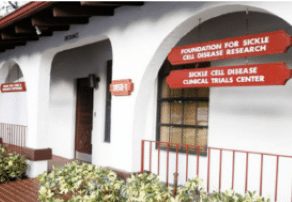Understanding Post-Traumatic Stress Disorder (PTSD): A Comprehensive Guide to Modern Treatment Options

PTSD is a complex and serious mental health condition triggered by experiencing or witnessing a traumatic event. Those suffering from PTSD may find themselves facing intense, disturbing thoughts and feelings related to their experiences that last long after the traumatic event has ended. With symptoms that can interfere with one’s daily life, understanding and treating PTSD is crucial for the well-being of those affected. Effective treatment can vastly improve quality of life, offering hope and grounding to those who struggle with the condition’s myriad challenges. Below, we delve deeper into the nature of PTSD, its symptoms, and the various treatment options available today.

Understanding PTSD and Its Impact on Mental Health
PTSD goes beyond the everyday stress that individuals face. It’s a condition marked by severe anxiety, flashbacks, nightmares, and uncontrollable thoughts about the traumatic event. These symptoms can disrupt daily activities, severely impairing one’s ability to function personally and professionally. PTSD affects not only veterans, as is the common perception, but anyone who has been through a traumatic experience, from natural disasters to personal assaults.
With PTSD, the brain becomes triggered by reminders of the trauma, responding as if the individual is facing the danger anew. This heightened state of stress can lead to chronic issues with sleep, concentration, and emotional regulation, making it difficult to maintain relationships or hold down a job. The impact on mental health can be profound, leading to secondary issues such as depression, anxiety disorders, and substance abuse.
Understanding the full scope of PTSD’s impact on the brain and an individual’s psyche paves the way for more targeted and effective treatments. It’s a crucial step toward eradicating the stigma associated with the condition and ensures that those suffering receive the compassion and support they need to heal. PTSD treatment Hawaii exemplifies a holistic approach to such care, emphasizing personalized treatment in a nurturing environment.
Breakthroughs in PTSD Treatment: What the Latest Research Shows
Recent years have ushered in an era of breakthroughs in the treatment of PTSD. Research has been pivotal in developing a deeper understanding of the condition, leading to more sophisticated and efficacious treatment options. One significant advancement has been the use of prolonged exposure therapy, which helps patients gradually confront trauma-related memories, feelings, and situations in a safe therapeutic environment.
Innovations in PTSD treatment also include cognitive processing therapy (CPT), which focuses on modifying and challenging unhelpful beliefs related to the trauma. Eye movement desensitization and reprocessing (EMDR) has also gained prominence as a treatment that can diminish the distress from traumatic memories through guided eye movements. These treatments have shown substantial success rates, offering renewed hope for those grappling with PTSD.
Traditional Versus Alternative Treatments: Exploring the Spectrum of PTSD Care
Traditional treatments for PTSD usually revolve around psychotherapy, medication, or a combination of both. These therapies are well-researched and generally accepted by the medical community. Psychotherapeutic interventions, such as cognitive behavioral therapy, have shown significant benefits, equipping patients with coping mechanisms to deal with the symptoms of PTSD. Medications like SSRIs (selective serotonin reuptake inhibitors) have been used to help alleviate mood-related symptoms.
However, there has been a growing interest in alternative treatments that provide additional pathways to healing. Methods such as acupuncture, yoga, and meditation have been explored for their potential to reduce stress and improve mental health in PTSD sufferers. These alternative approaches are often appealing because they are less invasive and can be adjunct to mainstream medical practices.
Navigating PTSD Recovery: Strategies for Patients and Caregivers
Recovery from PTSD can be a lengthy and challenging process, but with the right strategies, resilience, and support, healing is achievable. Patients must be patient with themselves, understanding that recovery takes time and that setbacks are a normal part of the process. Setting small, linkhouse manageable goals can help build momentum and a sense of accomplishment along the way.
Self-care is an indispensable aspect of recovery, involving activities that promote physical and mental well-being. Eating a balanced diet, getting regular exercise, and ensuring adequate sleep are foundational. Additionally, mindfulness practices such as meditation or deep breathing exercises can be instrumental in managing stress and anxiety symptoms.
Altogether, managing PTSD demands a comprehensive approach that involves patience, self-care, social support, and the guidance of mental health professionals. Overall, the journey to recovery is a testament to the resilience of the human spirit and the power of dedicated treatment and support.




